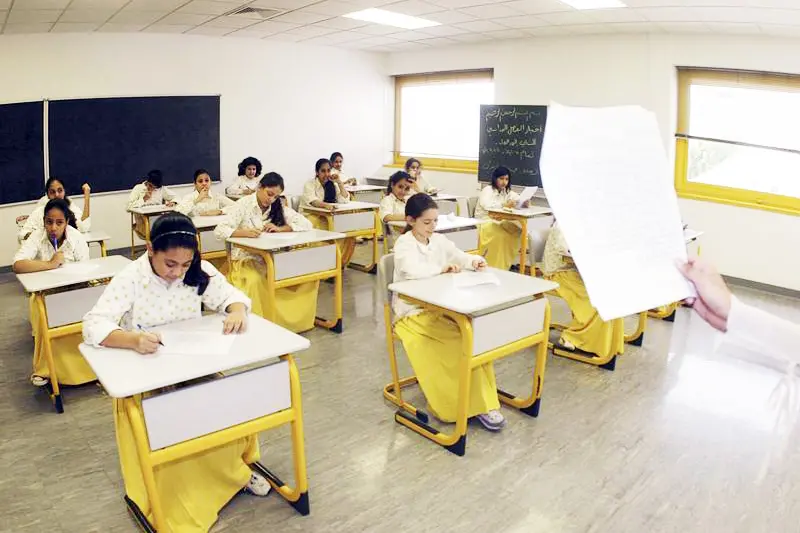PHOTO
Saudi Arabia is considering exempting private education and healthcare sectors from value-added tax (VAT), the Saudi Finance Minister Mohammed Al-Jadaan said in an interview with Saudi TV channel Al Saudiya on Wednesday.
A Saudi Shoura Council member, Abdullah Al-Sadoun, also called on Saudi authorities last month to exempt healthcare and educational services from VAT, stating that these are basic human necessities.
“Most countries do not impose taxes on healthcare and education in order to stimulate investments in these sectors, and governments usually support these sectors through direct contributions, loans and grants,” Saudi economic consultant Fayez Al Rabea told Zawya by email.
“In Saudi, there is currently a competition between private and public healthcare and education sectors. But the competitiveness of the private sector would be compromised with VAT imposed on it, while the public sector is exempt,” he added.
“It is wise for policy makers to boost the competitiveness of the private sector as it would lower the burden on its purse in terms of free public healthcare and education services if people are inclined towards private sector services,” he said.
“So I predict that the Saudi government will exempt these two sectors in order not to jeopardise its investments in private healthcare and education sectors, and I see that this might happen within the first quarter of 2018,” Al Rabea said.
Saudi households spent 21.8 billion Saudi riyals ($5.8 billion) on education costs in 2017, of which 7.64 billion riyals went on tuition fees, according to the latest figures from the Saudi General Authority for Statistics.
“VAT on educational tuition fees amount annually to 382 million (riyals). The cost of the tax on development and education could be higher than its revenue in this case!!” Saudi economic writer Abdul Hamid Al Amri said on Twitter.
Saudi Arabia introduced a 5 percent value added tax (VAT) on January 1. Although public healthcare and educational institutions do not fall into the VAT regime, private healthcare and education services are liable for VAT.
The 5 percent tax rate applies to private education institutions at all levels - from nurseries and schools to universities. The tax is also applied to academic tuition fees, students’ transport costs, and any other source of income for private academic institutions. (Read more here).
In the United Arab Emirates, on the other hand, most products and services related to the education and healthcare sectors are subject to a zero rate of VAT. Suppliers in sectors subject to a zero rate of VAT are allowed to reclaim the VAT they pay on business costs. (Read more here).
(Reporting by Nada Al Rifai, Editing by Michael Fahy)
(nada.rifai@thomsonreuters.com)
Our Standards: The Thomson Reuters Trust Principles
Disclaimer: This article is provided for informational purposes only. The content does not provide tax, legal or investment advice or opinion regarding the suitability, value or profitability of any particular security, portfolio or investment strategy. Read our full disclaimer policy here.
© ZAWYA 2018
A Saudi Shoura Council member, Abdullah Al-Sadoun, also called on Saudi authorities last month to exempt healthcare and educational services from VAT, stating that these are basic human necessities.
“Most countries do not impose taxes on healthcare and education in order to stimulate investments in these sectors, and governments usually support these sectors through direct contributions, loans and grants,” Saudi economic consultant Fayez Al Rabea told Zawya by email.
“In Saudi, there is currently a competition between private and public healthcare and education sectors. But the competitiveness of the private sector would be compromised with VAT imposed on it, while the public sector is exempt,” he added.
“It is wise for policy makers to boost the competitiveness of the private sector as it would lower the burden on its purse in terms of free public healthcare and education services if people are inclined towards private sector services,” he said.
“So I predict that the Saudi government will exempt these two sectors in order not to jeopardise its investments in private healthcare and education sectors, and I see that this might happen within the first quarter of 2018,” Al Rabea said.
Saudi households spent 21.8 billion Saudi riyals ($5.8 billion) on education costs in 2017, of which 7.64 billion riyals went on tuition fees, according to the latest figures from the Saudi General Authority for Statistics.
“VAT on educational tuition fees amount annually to 382 million (riyals). The cost of the tax on development and education could be higher than its revenue in this case!!” Saudi economic writer Abdul Hamid Al Amri said on Twitter.
Saudi Arabia introduced a 5 percent value added tax (VAT) on January 1. Although public healthcare and educational institutions do not fall into the VAT regime, private healthcare and education services are liable for VAT.
The 5 percent tax rate applies to private education institutions at all levels - from nurseries and schools to universities. The tax is also applied to academic tuition fees, students’ transport costs, and any other source of income for private academic institutions. (Read more here).
In the United Arab Emirates, on the other hand, most products and services related to the education and healthcare sectors are subject to a zero rate of VAT. Suppliers in sectors subject to a zero rate of VAT are allowed to reclaim the VAT they pay on business costs. (Read more here).
(Reporting by Nada Al Rifai, Editing by Michael Fahy)
(nada.rifai@thomsonreuters.com)
Our Standards: The Thomson Reuters Trust Principles
Disclaimer: This article is provided for informational purposes only. The content does not provide tax, legal or investment advice or opinion regarding the suitability, value or profitability of any particular security, portfolio or investment strategy. Read our full disclaimer policy here.
© ZAWYA 2018





















